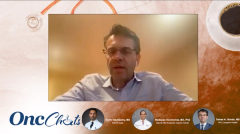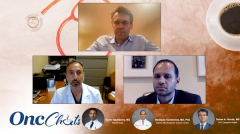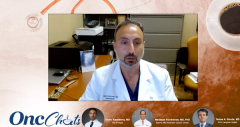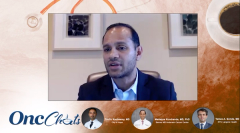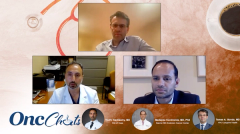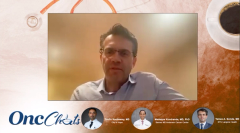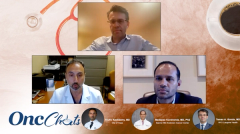
Leveraging Endoscopic Ultrasound in Pancreatic Cancer: Pancreatic Cancer Ablation and Immune Modulation
In this sixth episode of OncChats: Leveraging Endoscopic Ultrasound in Pancreatic Cancer, Toufic A. Kachaamy, MD, Madappa Kundranda, MD, PhD, and Tamas A. Gonda, MD, briefly discuss pancreatic cancer ablation and immune modulation.
Episodes in this series

In this sixth episode of OncChats: Leveraging Endoscopic Ultrasound in Pancreatic Cancer, Toufic A. Kachaamy, MD, of City of Hope, Madappa Kundranda, MD, PhD, of Banner MD Anderson Cancer Center, and Tamas A. Gonda, MD, of NYU Langone, briefly discuss pancreatic cancer ablation and immune modulation.
Kachaamy: Any comments on immune modulation in this situation? What's your experience or opinion on radiofrequency ablation and immune modulation?
Kundranda: I certainly think that most of the studies that we’ve looked at in terms of any kind of a local approach wherein you’re trying to release the neoantigens and you’re trying to get that desmoplastic stroma of pancreatic cancers, which are very difficult in terms of drug delivery, just because of the stroma [and some] of it is the microenvironment that makes it very nonimmunogenic, anything that we can do to improve the immunogenicity of the tumor would certainly be beneficial.
With that said, unfortunately, with pancreatic cancer, we have not had a whole lot of success [with this]. Some of it might also [boil down to the question of] what we are measuring vs what we should be measuring. As the saying goes, half of it is you need to ask the right question. I think to a certain degree, we have been trying to duplicate what we’ve seen in other tumors. [For] some of these [tumors], which we thought were nonimmunogenic, we are throwing a combination of immunotherapy and chemotherapy [at the disease] without a strong clinical rationale or a basic science rationale [for it]. That has worked in some of these tumors. We’re trying to do the same thing with pancreatic cancer. Hence, going back to the bench is critically important [so we can try] to define the question that we are asking and make sure that that is what we’re trying to base this [approach] upon. That said, immune modulation in pancreatic cancer is one of the most challenging parts of it but certainly we made some strides in measuring that immune modulation, whether it’s through radiofrequency ablation, stereotactic body radiation therapy, or some other measure. Including ablation would be something that we would need to continue to explore in these trials.
Check back on Tuesday for the final episode in this series.


